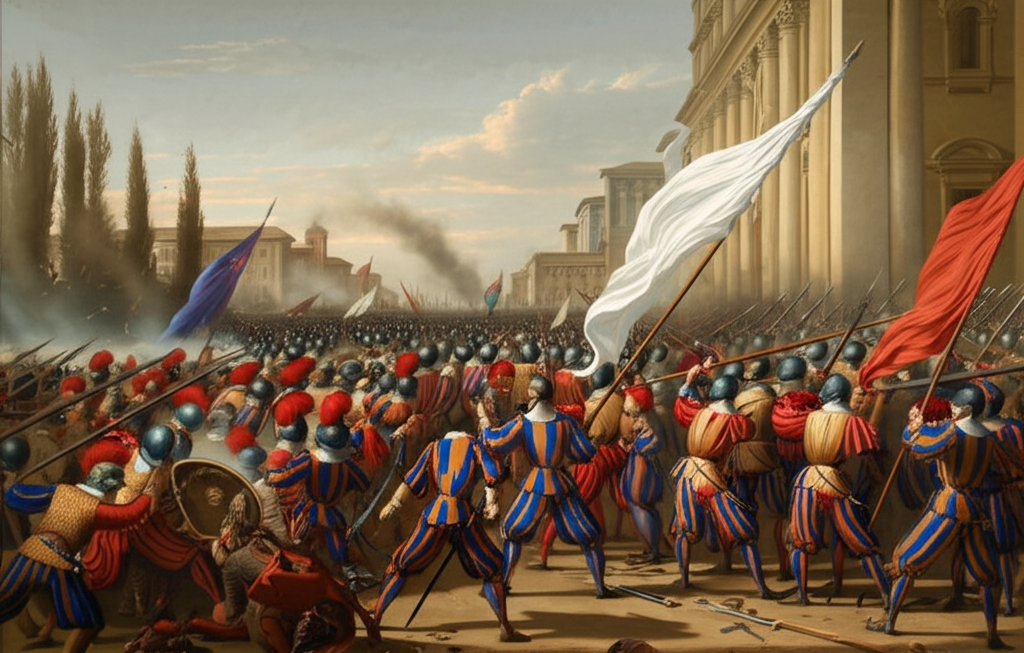Who Are They?

The Catholic Church has a rich history filled with important figures who have shaped and influenced the development of Catholic faith over the centuries. This article introduces some key figures in Church history.
Popes Who Changed History
Pope Gregory I "the Great" (590-604)
One of the most influential popes in early Church history. He reformed the liturgy, sent missionaries to England, and laid the foundations for the temporal power of the Papacy. Gregory is also known for his influential writings and the development of Gregorian chant.
Pope Innocent III (1198-1216)
Under his leadership, papal power reached its height in the Middle Ages. He oversaw the Fourth Lateran Council (1215), which established many Catholic doctrines and practices that endure to this day. He also supported the founding of new religious orders like the Franciscans and Dominicans.
Pope Leo XIII (1878-1903)
Known for his encyclical Rerum Novarum (1891), which laid the foundation for modern Catholic social teaching. He opened the Vatican Archives to researchers and encouraged the study of the Bible and Church history. His papacy marked the beginning of greater Church involvement in social and economic issues.
Pope John XXIII (1958-1963)
Though his papacy was brief, he dramatically changed the Church by convening the Second Vatican Council. Known as the "Good Pope," he brought a spirit of renewal and openness to the Catholic Church.
Pope John Paul II (1978-2005)
One of the most influential popes of the modern era. He played a significant role in the fall of communism in Eastern Europe, strengthened relations with other religions, and reached out to youth through World Youth Day. He was also known for his extensive pastoral travels, visiting 129 countries during his papacy.
Theologians and Doctors of the Church
St. Augustine of Hippo (354-430)
One of the most influential Christian thinkers of all time. His works, including "Confessions" and "City of God," have shaped Catholic theology and Western thought in general. His teachings on original sin, grace, and predestination continue to influence Christian theology to this day.
St. Thomas Aquinas (1225-1274)
Preeminent theologian and philosopher who integrated Aristotelian philosophy into Christian theology. His major work, "Summa Theologica," remains an important text in theological education. He is known for his rational approach to faith and his influence on the development of natural law.
St. Teresa of Avila (1515-1582)
Spanish mystic, writer, and reformer who reformed the Carmelite Order. Her writings on contemplative prayer, including "Interior Castle," have influenced Catholic spirituality for centuries. She was the first woman to be named a Doctor of the Church in 1970.
Founders of Religious Orders
St. Benedict of Nursia (480-547)
Founder of Western monasticism and the Benedictine Order. His rule, "Regula Benedicti," emphasizes balance between prayer, work, and study, and has shaped monastic life for over 1,500 years.
St. Francis of Assisi (1181-1226)
Founder of the Franciscan Order known for his love of poverty, creation, and peace. He abandoned a wealthy lifestyle to live in radical poverty and serve the poor. His influence is seen in many contemporary environmental and peace movements.
St. Ignatius of Loyola (1491-1556)
Founder of the Society of Jesus (Jesuits) which has played a significant role in Catholic education, missions, and intellectualism. His "Spiritual Exercises" remains an influential spiritual guide. The Jesuits continue to be one of the most influential religious orders in the Church.
Missionaries and Evangelists
St. Paul (5-67)
Though not one of the original 12 apostles, Paul became the "Apostle to the Gentiles" whose writings form much of the New Testament and early Christian theology. His missionary journeys spread Christianity throughout the Mediterranean world.
St. Patrick (385-461)
Missionary and patron saint of Ireland who brought Christianity to Ireland in the 5th century. His influence is seen in the flourishing Irish monasticism that later helped preserve Christian learning during the Dark Ages in Europe.
St. Francis Xavier (1506-1552)
One of the most influential Catholic missionaries, who brought Christianity to parts of Asia, particularly India, Japan, and the coast of China. He was one of the founding members of the Society of Jesus and is known for his extraordinary missionary zeal.
These figures represent just a small fraction of the many men and women who have shaped the history and identity of the Catholic Church. Through their writings, teachings, and examples of life, they continue to inspire and guide Catholics around the world today.
Artikel atau doa ini dapat disalin dan disebarluaskan dengan syarat mencantumkan sumber artikel dari www.doa-katolik.com

